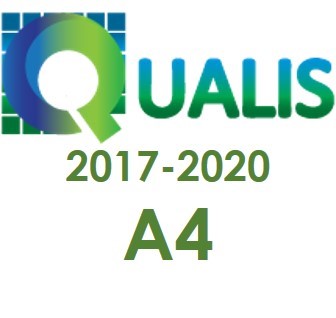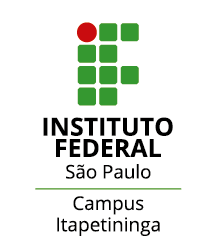Field Activities in Geology teaching
Portuguese teachers’ opinions on ideal ways to using them
Keywords:
Field activities. Geology teaching. Teachers’ opinions. Ideal approaches.Abstract
Most geological phenomena are large scale phenomena in terms of both time and space. Therefore, they cannot be reproduced in the school laboratory to be studied. Thus, if the Geology teacher wants students to get in touch with those phenomena, he/she needs to organize a field trip so that the necessary learning activities can be undertaken in the place where the phenomena occur. However, even though teachers and students acknowledge the educational potential of field trips, teachers seldom organize them and they mention several impairments to justify it. This paper reports on the results of a research study carried out with 233 Biology and Geology Portuguese teachers that were asked about the ideal ways of integrating field activities in the 3rd cycle (n=102) and the secondary school (n=121) Geology teaching. The results suggest that the way teachers would like to put into practice field activities if there was no constraint to them, would not differ too much from real practices that are reported in the literature. In fact, teachers showed low exigency and audacity with regard to the way that they would like field activities to be put into practice. Therefore, pre-service and in-service teacher education should include training on how to appropriately use field activities and schools should be reorganized in order to facilitate teachers’ job of the preparing relevant field trips.
Downloads
References
ALEXANDAR, R.; POYYAMOLI, G. The effectiveness of environmental education for sustainable development based on active teaching and learning at high school level-a case study from Puducherry and Cuddalore regions, India. Journal of Sustainability Education, v. 7, 2014. Disponível em: <http://www.susted.org/> Acesso em 15/04/2016.
ALVAREZ-SUÁREZ, R. La utilización de modelos experimentales en Geologia. Alambique: Didáctica de las Ciencias Experimentales, v. 35, p. 60-69, 2003.
ANDERSON, D.; KISIEL, J.; STORKSDIECK, K. Understanding teachers’ perspectives on field trips: discovering common ground in three countries. Curator: the Museum Journal, v. 49, n. 3, p. 365-386. 2006.
AUSUBEL, D.; NOVAK, J.; HANNESIAN, H. Psicologia educacional. São Paulo: Editora Interamericana, 1980.
BALCI, A. The impact of geographical trips on geography teaching. Education, v.131, n. 1, p. 33-42. 2010.
BARROS, J.; ALMEIDA, P.; CRUZ, N. Fieldwork in geology: teachers’ conceptions and practices. Procedia - Social and Behavioral Sciences, v. 47, p. 829-834. 2012.
BERHENT, M.; FRANKLIN, T. A review of research on school field trips and their value in education. International Journal of Environmental & Science Education, v. 9, p. 235-245. 2014.
BEREZUK, P.; OBARA, A.; SILVA, E. Concepções e práticas de professoras de ciências em relação aos trabalhos: prático, experimental, laboratorial e de campo. in VII ENPEC – Encontro Nacional de Pesquisa em Educação em Ciências. 2009. Disponível em: < http://posgrad.fae.ufmg.br/ posgrad/viienpec/pdfs/1675.pdf> Acesso em 05/03/2016.
BRAUND, M.; REISS, M. The nature of learning science outside the classroom. in BRAUND, Martin; REISS, Michael (eds) Learning science outside the classroom. London: Routledge, 2004, p.1-12.
BRUSI, D.; ZAMORANO, M.; CASELLAS, R.; BACH, J. Reflexiones sobre el diseño por competencias en el trabajo de campo en Geología. Enseñanza de las Ciências de la Tierra, v. 19, n. 1, p. 4-14. 2011.
COMPIANI, M. Geologia/Geociências no ensino fundamental e a formação de professores. Geol. USP Publ. Espec., v. 3, p. 13-30. 2005.
COMPIANI, M.; CARNEIRO, C. Os papéis didácticos das escursões geológicas. Enseñanza de las Ciencias de la Tierra, v.1, n. 2, p. 90-98. 1993.
COSTA, C. Interdisciplinaridade: das conceções às representações de práticas de professores de ciências. in CASTELLAR, Sônia. & MUNHOZ, Gislaine (Org.) Conhecimentos escolares e caminhos metodológicos. São Paulo: Xamã Editora, 2012, p. 101-120.
DILLON, M. Teaching science outside the classroom. in TOPLIS, Rob (ed) How science works London: Routledge, 2011, p. 134-147.
DOURADO, L.; LEITE, L. Field activities, science education and problem-solving. Procedia - Social and Behavioral Sciences, v. 106, p. 1232-1241. 2013.
DOURADO, L.; LEITE, L. The use of field activities in Geology teaching: conceptions and representations of practices of Portuguese teachers. Turkish Online Journal of Educational Technology, n. Especial 2, p. 681-691, 2015.
DUMMER, T.; COOK, I.; PARKER, S.; BARRETT G.; HULL, A. Promoting and assessing ‘deep learning’ in Geography fieldwork: an evaluation of reflective field diaries. Journal of Geography in Higher Education, v. 32, n. 3, p. 459-479. 2008.
FULLER, I.; GASKIN, S.; SCOTT, I., Student Perceptions of Geography and Environmental Science fieldwork in the light of restricted access to the field, caused by foot and mouth disease in the UK in 2001. Journal of Geography in Higher Education, v. 27, n. 1, p. 79–102, 2003.
HAN, L.; FOSKETT, N. Objectives and constraints in geographical fieldwork: teachers’ attitudes and perspectives in senior high schools in Taiwan. International Research in Geographical and Environmental Education, v. 16, n. 1, p. 5-20. 2007.
HOWARTH, S.; SLINGSBY, D. Biology fieldwork in school grounds: a model of good practice in teaching science. School Science Review, v. 87, n. 320, p. 99-105. 2006.
JAÉN, M., & BERNAL, M. Integración del trabajo de campo en el desarrollo de la enseñanza de la Geologia mediante el planteamiento de situaciones problemáticas. Enseñanza de las Ciencias de la Tierra, v. 1, n. 3, 153-166. 1993.
KING, H.; GLACKIN, M. Supporting Science learning in out-of-school contexts. in OSBORNE, Jonathan; DILLON, Justin (eds.) Good practice in science teaching: what research has to say. Berkshire: Open University Press, 2010, p. 259-273.
LOCK, R. Fieldwork in life sciences. International Journal of Science Education, v. 20, n. 6, p. 633-642. 1998.
LOCK, R. Biology fieldwork in schools and colleges in the UK: an analysis of empirical research from 1963 to 2009. Journal of Biological Education, v. 44, n. 2, p. 58-64. 2010.
MARQUES L.; PRAIA J. Educação em Ciência: actividades exteriores à sala de aula. Terræ Didatica, v. 5, n.1, p. 10-26. 2009. Disponível em <http://www.ige.unicamp.br/terraedidatica/>
MCMILLAN, J.; SCHUMACHER, S. Research in education: evidence-based inquiry, 7a. ed. New Jersey: Pearson International Edition, 2010.
MORCILLO, J.; RODRIGO, M.; CENTENO, J.; COMPIANI, M. Caracterización de las prácticas de campo: justificación y primeros resultados de una encuesta al profesorado. Enseñanza de las Ciencias de la Tierra, v. 6, n. 3, p. 242-250, 1998.
ORION, N. A model for the development and implementation of field trips as an integral part of the science curriculum. School Science and Mathematics, v. 93, n. 6, p. 325-331. 1993.
ORION, N. (1998). Implementation of new teaching strategies in different learning environments within science education. in FERNANDES, Domingos (org). Conferência internacional Ensino secundário: projectar o futuro, políticas, currículos, práticas. Lisboa: Ministério da Educação, 1998, p. 125-139.
PEDRINACI, E.; SEQUEIROS, E.; GARCIA, E. El trabajo de campo y el aprendizaje de la Geología. Alambique: Didácticas de las Ciências Experimentales, v. 16, n. 1, p. 17-20. 1994.
REBELO, D.; MARQUES, L.; COSTA, N. Actividades en ambientes exteriores al aula en la Educación en Ciencias: contribuciones para su operatividad. Enseñanza de las Ciencias de la Tierra, v. 19, n. 1, p. 15-25. 2011.
REMMEN, K.; FRØYLAND, M. What happens in classrooms after earth science fieldwork? Supporting student learning processes during follow-up activities. International Research in Geographical and Environmental Education, v. 24, n. 1, p. 24-42. 2015.
RYAN. R.; DECI, E. 2000. Intrinsic and extrinsic motivations: classic definitions and new directions. Contemporary Educational Psychology, v. 25, p. 54-67, 2000.
SCORTEGAGNA, A.; NEGRÃO, O. Trabalhos de campo na disciplina de Geologia introdutória: a saída autônoma e seu papel didático. Terra e Didatica, v. 1, n. 1, p. 36-43, 2005.
SCOTT, G.; BOYD, M.; SCOTT, L.; COLQUHOUN, D. Barriers to Biological fieldwork: what really prevents teaching out of doors?. Journal of Biological Education, v. 49, n. 2, p. 165-178, 2015.
SCOTT. I.; FULLER, I.; GASKIN, S. Life without fieldwork: some lecturers’ perceptions of Geography and Environmental Science fieldwork. Journal of Geography in Higher Education. v. 30, n. 1, p. 161-171, 2006.
STOKES, A.; MAGNIER, K.; WEAVER, R. What is the use of fieldwork? Conceptions of students and staff in Geography and Geology. Journal of Geography in Higher Education, v. 35, n. 1, p. 121-141. 2011.
TARBUCK, J.; LUTGENS, F.; TASA, D. Earth: an introduction to Physical Geology, 11a. ed. Boston: Pearson, 2014.
TORO, R.; MORCILLO, J. Las actividades de campo en educación secundaria. Un estudio comparativo entre Dinamarca y España. Enseñanza de las Ciencias de la Tierra, v. 19, n. 1, p. 39-47. 2011.
UITTO, A.; JUUTI, K.; LAVONEN, J.; MEISALO, V., Students' interest in Biology and their out-of-school experiences, Journal of Biological Education, v. 40, n.3, p. 124-129, 2006.
VAN DRIEL, J.; ABELL, S. Science Teacher Education. in MCGRAW, Barry; PETERSON, Penepole; BAKER, Eva (eds) International Encyclopedia of Education, 3a. ed, v. 7. Oxford: Elsevier, 2010, p. 712-718.
VIVEIRO, A.; DINIZ, R. As atividades de campo no ensino das ciências. in NARDI, Robert (org) Ensino de ciências e matemática I: temas sobre a formação de professores. São Paulo: Cultura Acadêmica, 2009, p.27-42. Disponível em <http://books.scielo.org/id/g5q2h/pdf/ nardi-9788579830044-03.pdf > Acesso em 05/03/2016.
ZAMALLOA, T.; MAGUREGI, G.; FERNÁNDEZ, M.; ECHEVARRÍA, I.; SANZ, J. Acercar la geodiversidad através de las salidas de campo en la ESO. Una investigación con el profesorado de ciencias de Bizkaia. Enseñanza de las Ciencias, v. 32, n. 3, p. 443-467. 2014.
Downloads
Published
How to Cite
Issue
Section
License
Copyright (c) 2024 Revista Internacional de Formação de Professores

This work is licensed under a Creative Commons Attribution-NonCommercial-ShareAlike 4.0 International License.



 Este trabalho está licenciado sob uma licença
Este trabalho está licenciado sob uma licença 